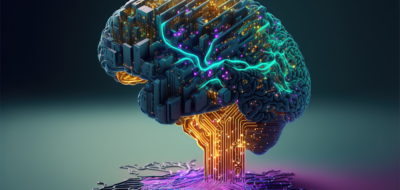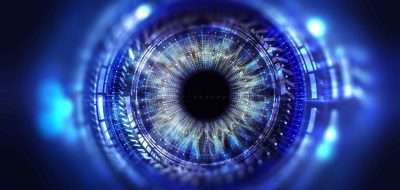Certain machine behaviors never cease to amaze me. I’m astounded by their ability to learn from their accomplishments and from their interactions with we humans. Unfortunately, many business managers still think of artificial intelligence (AI) and machine learning algorithms as something that will be impossible for them to understand. But I believe that knowing the fundamental principles that underlie the new technologies behind autonomous vehicles, shopping recommendation engines, Alexa and the rest can boost managers’ confidence in them and help them make their companies more innovative.
Two flavors of learning
The two key drivers of major smart technologies today are machine learning and deep learning.
Machine learning is commonly described as the foundation of predictive analytics. Positioned at the nexus of IT and statistical modeling, machine learning enables applications to analyze data without prior programming, foresee the outcomes of actions and, quite frequently, reach autonomous decisions.
Deep learning is a brand of AI that employs neural networks, today mainly to perfect voice recognition and natural language processing. Simply put, deep learning is a way of automating predictive analysis.
Both machine learning and deep learning support self-learning machines in processing massive data sets. Their capabilities and applications vary widely.
Algorithms vs humans
Machine learning algorithms allow computers to classify and utilize input data. However, machine learning is subject to one key restriction: the computer is limited to the data given it. The world’s most powerful computer (at the time), IBM’s Deep Blue, would never have defeated chess champion Garry Kasparov in 1997 if people had not fed it the right data and pointed it towards the right sources of knowledge.
Deep learning takes the game to a whole new level. Deep learning mimics the working of the human brain. A computer employs neural networks comprised of sets of parallel processors that access massive amounts of data. Every time a computer gains a new experience, and acts on it, the links among its processors, and the information streams they use (which can be described as nodes), organize themselves – just as a child’s brain might as he or she gains experience. Over time, this organization becomes more sophisticated (or, grown up), allowing the machine to perform more efficiently.
This is an astonishing process.
Why this and not that?
A computer’s ability to resolve ever more complex problems based on prior experience and interactions with humans has brought about a breakthrough in the development of smart technologies. The question is, Why have these new machine skills popularized some technologies but not others?
Machine learning and deep learning computers analyze data in a number of ways, formulating decision-making rules either autonomously or with human assistance. They analyze databases (an approach central to Big Data handling), classify objects (grouping images with common characteristics), detect errors (by comparing objects and states to assess the probability of distortions), offer recommendations (like what book or shirt you might like based on your purchasing history), and refine solutions (say, searching for the best route to grandma’s house).
These processes have become essential for today’s consumers, and that drives business innovation toward a handful of nicely-packaged solutions.
That’s why certain technologies have been optimized, and others not.

Three trends driving AI in business
Through the power of business, marketing and social decision-making, these IT concepts are transformed into innovations and products. If data processing algorithms are of any predictive value, then it only stands to reason they should drive e-commerce projects in which stores recommend products to customers that are similar to the items they have bought previously. And, as an algorithm capable of compiling datasets based on common characteristics will be able to tell whether a picture represents a dog or an airplane, social media sites that hold billions of user photographs see the potential to increase user engagement.
Today, there are three popular business drivers dependent on AI.
1. Error reduction
The reduction or elimination of anomalies is particularly important for the Internet of Things (IoT). I am referring here to the growing popularity of sensory devices that acquire data from the environment. The enormous amount of information collected on streets and in stores and even apartments (in smart homes) can be used to our advantage. It’s nice to come home that turns on the lights and the boiler when you approach. However, these uses are not without risks. For the average citizen, irregularities may be a nuisance (due to smart device failures) as well as a reason to feel vulnerable if the data your house is collecting on you finds its way into the hands of others.
Eliminating errors is even more critical in the automotive and aerospace industries. Sensors are used in aircraft engines for real-time in-flight data stream collection and errors there can be fatal. Sensor systems also support autonomous vehicles and the correction of irregularities in the data collected by cameras and LiDAR sensors will have a tremendous impact on the future of these technologies. No one wants error-prone vehicles on the road.
2. Customer satisfaction
Predictive analytics (recommendations) are among the most coveted functionalities in both e-commerce and retailing. Corporations such as Amazon and Netflix have turned predictive systems into a valuable asset and competitive advantage, and in so doing have created a newde facto standard of consumer expectations.
In the coming years, e-commerce will see the development of technologies centered around customer voice and facial recognition. The functionality will be used to train bots to serve as digital assistants capable of better communicating with people. Today’s still-imperfect bots will improve steadily so, in time, they will do the jobs of all call center employees. The bots will recommend products that we may find to be of interest, book vacations, suggest loans offering the best terms and arrange doctor’s appointments for us.
3. Efficiency gains
The predictive abilities of algorithms can have a huge impact on efficiency, which is essential for every business. As we all know, efficiency gains are a priority for many corporate boards in all industries. In the transport industry, for instance, managing directors are unlikely to ignore the potential of surveilling drivers and their vehicles in real time to cut costs by orders of magnitude. Devices that track driver reactions, engine performance, stopovers and road obstacles can suggest to drivers when it is best to accelerate, slow down, refuel and resume their trips. Not only will this generate substantial savings, but it will improve safety.
Who appreciates the potential today?
In “Notes from the AI frontier: Applications and value of deep learning.” McKinsey Global Institute looks at those industries most eager to deploy machine learning and deep learning and most likely to benefit from predictive capabilities, image recognition and error detection. Today, the list is topped by retailers and considering the enormous amount of data on customers that retailers have collected it’s no wonder. Information on age, education, employment, and prior purchasing patterns allow companies to take the customer experience to a previously undreamed of level. The linking of customer purchase histories with their social media activity has become a prime global e-commerce tool.
A number of factors have fostered the widespread adoption of AI in the tourism business. Travel agencies that can keep track of their customers’ travel histories and analyze the images they post online are better positioned to engage them, offer them new products and, ultimately, gain their loyalty, thereby improving the agencies’ bottom lines. And, in a virtuous circle, the enormous popularity of posting travel images on social media significantly increases the volume of valuable data available to the industry.
Every industry relies on its own mix of algorithmic functions. But it is only when combined with one another that recommendation systems, error detection, anomaly identification and optimized decision-making creates a technological foundation for business success.

Fear of the black box
According to McKinsey Global Institute, out of all of the surveyed companies that claim to be aware of the potential of AI, only 20 percent are really benefiting from it. A number of factors stand in the way. One of them is cognitive discomfort, which boils down to: “How did the machine arrive at its conclusion?”
Because deep learning is self-organizing, independent of the data fed it, its thinking is opaque to humans. This creates problems that go way beyond our human and sometimes irrational fear of the “other.” As a consequence of not knowing how the machine thinks, regulatory and certification systems in many industries have grown extremely complex, making it practically impossible to embrace innovative AI solutions either quickly or confidently. The health care, aerospace and banking sectors are unlikely to abandon their highly formalized control procedures and certification systems overnight to let their machines act autonomously.
Security constitutes another limitation. It is not easy to persuade the general public that facial recognition technologies will not harm people and compromise their privacy. Indeed, data processing as a whole is under careful scrutiny from both governments and non-governmental organizations. AI, which needs data like we need air, may suffocate due to our fears. Of course, money plays a role in limiting investment in AI technologies. Any company’s decision to invest in costly IT systems, set up business units to handle new data, and employ experts who know how to interpret it and make it accessible must be rational and act in ways that make financial sense..
Let the benefits meet the needs
In my view, the key challenge faced by modern managements is to recognize and identify the potential to their individual businesses of the new technology and tailor their investments to their real needs. Expertise in AI by itself is not sufficient. Tech start-ups and more mature tech companies alike must know their clients’ industries before presenting offers. Right now, I believe the extent to which AI will transform markets will remain, for the time being, modest. That, by the way, given the challenges that lie before us, is not such a bad thing. On the contrary, it means the market continues to be open to new opportunities.
. . .
Works cited:
The Guardian, Luke Harding And Leonard Barden, From the archive, 12 May 1997: Deep Blue win a giant step for computerkind, link, 2011.
MIT, Dimitrios G. Myridakis, Anomaly detection in IoT devices via monitoring of supply current, link, 2018.
Ars Technica, TIMOTHY B. LEE, Why experts believe cheaper, better lidar is right around the corner, link, 2018.
McGill University at Montreal, Frank P. Ferrie, Ruisheng Wang, Jeff Bach and Jane Macfarlane,A New Upsampling Method for Mobile LiDAR Data, link, 2018.
HuffPost, Marquis Cabrera, NCCD, Netflix, and Amazon all use predictive analytics—what is different about child welfare is the consequences of mistakes, link, 2018.
The NetFlix Tech Blog/ Medium, Chaitanya Ekanadham, Using Machine Learning to Improve Streaming Quality at Netflix, link, 2018.
McKinsey Global Institute, Michael Chui, James Manyika, Mehdi Miremadi, Nicolaus Henke, Rita Chung, Pieter Nel, and Sankalp Malhotra,Notes from the AI frontier: Applications and value of deep learning,link, 2018.
. . .
Related articles:
– Artificial intelligence is a new electricity
– Machine, when you will become closer to me?
– Will a basic income guarantee be necessary when machines take our jobs?
– Can machines tell right from wrong?
– Medicine of the future – computerized health enhancement










And99rew
I like to tell myself that any of the “end game” models of the universe (contract to singularity, infinite expansion, etc) will eventually throw all our constants and understanding of physics out the window, so everything we discover now will eventually become meaningless.
Jang Huan Jones
Actual experts in AI, which Musk is not, have already denounced his bullshit doomsaying as baseless paranoia.
John Accural
Nice read
Adam Spark Two
Don’t get me wrong Norbert. Overall it’s a great read 🙂
Adam Spark Two
Also, if you’re talking about literally copying a human’s brain and putting it into a machine, then you’re opening up another gigantic can of worms. A human brain isn’t worth much in a vacuum. It needs sensory input from the outside world to function. It’s not like the brain would magically be able to access computer networks or any of that sci-fi BS. It had spent decades training to run a human body, and it wouldn’t have any way of doing anything else.
Copying a human brain would require also being able to simulate all the range of inputs that brain expects, if you wanted that brain to not go totally insane. So that makes the problem even more complicated, not to mention exponentially increasing the processor power required.
John Accural
Your brain is estimating how much you will enjoy something (making you motivated to do it) not as an average or single data point, but is predicting a range of possible outcomes for how awesome it might be.
I think.
Mac McFisher
Strange that the article doesn’t attempt to justify the title claim or discuss the AI race.
Good overall thesis, that China’s advantage is resource direction, America’s is innovation and Europe’s is equality. Regarding the AI race this should be worrying for Europe.
Interesting conclusion that the US needs to catch up with Europe on efficient wealth redistribution to maintain leadership. Thought they were building up to advocating for UBI but they wussed out in the end merely calling for shifting the tax burden away from labor.
Jack666
Boy, ain’t they fun? Take a look at markov models for even more matrices, I’m doing an on-line machine learning course at the moment and one of our first lectures was covering using eigenvectors for stationary points in page rank. Eigenvectors and comp sci was not something I was expecting (outside of something like graphics)
Pico Pico
Nice read Norbert
SimonMcD
A better first use case would be a dedicated environment without pedestrians or non-autonomous vehicles and featuring a bunch of interconnected ground based sensors to supplement sensors on vehicles themselves. Perhaps it could feature autonomous buses for cheap trips alongside autonomous taxis for pricier travel.
AKieszko
Yes they should be regulated. I mean windows 10 and google chrome are still a buggy mess despite the supposely AI involved. I’d rather they master the technique before releasing a bluescreen of death that decided war economy makes best money.
Jang Huan Jones
Even if its completely untrue it gives a taste of what the future may hold. Having said that, the issue of an AI driven war between superpowers and the issue of AI being used against a certain political ideology are orders of magnitude in difference. One is an existential threat to the entirety of humanity and the other is not.
TonyHor
Hi Norbert. Great stuff. Love your articles 🙂
AndrewJo
The algorithm was able to predict ethnicity and age well but surprisingly, NOSE SHAPE. There are of course other variables at play that affect our voice, but this mainly focused on generating frontal images (thus nose shape was what they picked up on).
Perhaps we should be asking how has your voice changed after mewing?
TommyG
Imagine that you have all the tweets on a bank’s customer care page in Twitter. If you can somehow analyse these tweets and find out where are the customers facing an issue, and to what degree, will that be useful? Can banks leverage this insight to improve their services?
Tom299
Good read Norbert
AKieszko
I don’t want any of these big corporations to be involved in future regulatory boards. Amazing to watch all of the antitrust cases that go on in Europe… and then we realize that they are doing the same things here, but without consequences. But really, no companies are being regulated. Fuck, we can’t even protect public land from them anymore. A quarter of the country is addicted to opioids and we can’t manage to regulate that either.
Peter71
One concern is that AI programs may be programmed to be biased against certain groups, such as women and minorities because most of the developers are wealthy Caucasian men. Recent researches show that support for artificial intelligence is higher among men than women.
Algorithms have a host of applications in today’s legal system already, assisting officials ranging from judges to parole officers and public defenders in gauging the predicted likelihood of recidivism of defendants. An AI-based criminal offender profiling application assigns an exceptionally elevated risk of recidivism to black defendants while, conversely, ascribing low-risk estimate to white defendants significantly more often than statistically expected.
Jack23
Particularly the section on early speaking machines.
I heard him give this (or a similar) talk once. There was a particularly titillating bit about someone who pumped air through cadaver heads and manipulated the corpse’s vocal cords to synthesize phonemes, but I can’t find any info about that right now 🙁
Jang Huan Jones
Who is the hacking group that is working on trying to neutralize any weaponized robotic threat including Alphabet/Google/Boston Dynamics?
Dzikus99
The AI systems are capable enough to reduce human efforts in numerous areas. To conduct different operations in the industry, many of them are using artificial intelligence to create machines that perform various activities regularly. The artificial intelligence applications help to get the work done faster and with accurate results.
Acula
In the expanding world of the Internet of Things, entrepreneurs would be better off to remember two old adages: Resistance is futile, and if you can’t beat them join them. No matter its predicted benefit, the notion of change is hard to accept because people are settled into comfort zones and face resistance based on the status quo. Profiting from your information might be the best selling point. After all, everyone else will benefit from your data. Why not you?
And99rew
Computers are very good at making artificial voices. I don’t know why you’d think otherwise unless you think that unless they are 100% perfect then they “suck”.
Mechanical voice simulation is pretty clumsy. The original one is the Voder from 1939. An impressive feat, but little better than early digital speech synthesis.
I think that you massively underestimate the vast muscle array and speed of motion required for the human voice.
Mac McFisher
It will still be the United States. Deep Mind is so far ahead of anything that the Chinese government has, and their rate of advancement only seems to be growing. Given China’s demographic problems and overall stagnating growth, I don’t see how they can catch up.
John Macolm
Not everyone can live with having no humans involved in the drawing up and conclusion of AI. The approach of skeptics resembles that of drivers who swear they will never get into an autonomous vehicle or allow an IT code make decisions concerning road safety.
PiotrPawlow
“Because deep learning is self-organizing, independent of the data fed it, its thinking is opaque to humans. This creates problems that go way beyond our human and sometimes irrational fear of the “other.”
To suggest that legitimate fears of the black box is irrational + related to purely human emotions and social constructs (“other”) reveals that you have little stake in the humanity of the technology you create and support Norbert. Further, you have failed your readers by omitting (I’d wager purposefully) any real coverage of the dangers surrounding the creepiness of the surveillance state ushered in by IoT devices.
CaffD
Despite widespread references to ‘responsible AI’, responsibility and accountability are rarely defined. Nonetheless, specific recommendations include acting with ‘integrity’ and clarifying the attribution of responsibility and legal liability, if possible upfront, in contracts or, alternatively, by centering on remedy. In contrast, other sources suggest focusing on the underlying reasons and processes that may lead to potential harm.
NorTom2
Until now we still didn’t know when we will have good Natural Language Understanding.
This is very important and useful for many people and many different sectors
Jang Huan Jones
I find this pretty funny it seems like a lot of people don’t notice the fact that there’s a double agenda and bias when Elon Musk says worry about Russian artificial intelligence and technology what he is really saying is pay me lots of money to make technology.
Andrzej
In this journey humans vs robots we are already doomed
Check Batin
Great read
Zidan78
Great read
AdaZombie
There are already mind-controlled game interfaces, and medical devices to move paralyzed limbs.
Now, to have an “Alexa” in the middle of a mind-controlled communication device is unnecessary and worthless.
John Accural
It means that a better approximation of how a natural human’s neural network learns is “you think some rewards are better than others”, instead of “every reward feels average, as calculated based on all rewards you can think of”
This means the neural networks we create when we play electricity god will get even smarter as we discover better ways to apply this new-found knowledge to our creations.
tom lee
Thanks for breaking this down! As I’ve always said in my entire career and fostered in me early on and passionate about it since:
“…Protect the weak from temptation and the strong from corruption…”
Adam Spark Two
I see robots everywhere 🙂
Mac McFisher
Great post Norbert Biedrzycki and thanks for sharing
Norbert Biedrzycki
Thank you
Check Batin
It’s not a “general AI”, but a “specialized AI”. “AI” is still the correct term.
Yes, could be that the term has not been defined perfectly since “intelligence” is a broad term, but calling it “AI” is correct w.r.t. how the term has been defined and how it is used.
Jang Huan Jones
People need to stop idolising Elon Musk. His words aren’t cliffhangers to analyse and deliberate. He has no credentials in this field; he doesn’t engineer the software powering Tesla vehicles; he’s just the CEO.